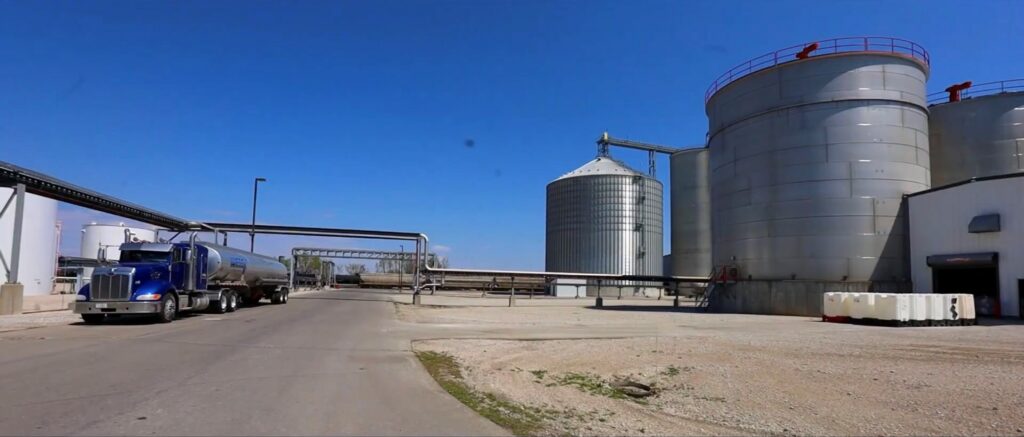The Ethanol Process
Ethanol is an alcohol that is produced through fermentation, chemical processing and distillation. In the United States, ethanol is primarily made from corn. During the dry milling process, the entire corn kernel is ground into a meal. Water is added to the meal turning it into mash (removing the liquid during this time creates inedible corn oil). Enzymes are added to the mash to convert the starch into sugar. The mixture is processed at high temperatures with yeast and then cooled in fermenters where the conversion from sugar to ethanol takes place. During this process, carbon dioxide is created.
The entire process, from corn to ethanol, takes between 40-50 hours. After the process is complete, the alcohol is moved into distillation columns where the “stillage” is removed. The ethanol is then dehydrated to approximately 200 proof. From there, a denaturant is added, such as gasoline, to make the ethanol undrinkable. The stillage can remain wet, or be dried to create a co-product called distiller grains, a highly nutritious animal feed.
How it's used
In the United States, there are approximately 200 ethanol plants producing nearly 15 billion gallons of ethanol per year. Today, most ethanol is used as an oxygenate in the form of E10, 10 percent ethanol, 90 percent gasoline. In 2010, the Environmental Protection Agency approved the use of E15 (15 percent ethanol, 85 percent gasoline) for all conventional vehicles and light duty trucks manufactured after 2001. Higher blends of ethanol such as E20, E30, E40 or E85 (85 percent ethanol and 15 percent gasoline) are only approved for use in flex-fuel vehicles. Today there are over 2,000 E85 or blender pumps and more than 10 million flex-fuel vehicles on the road.

